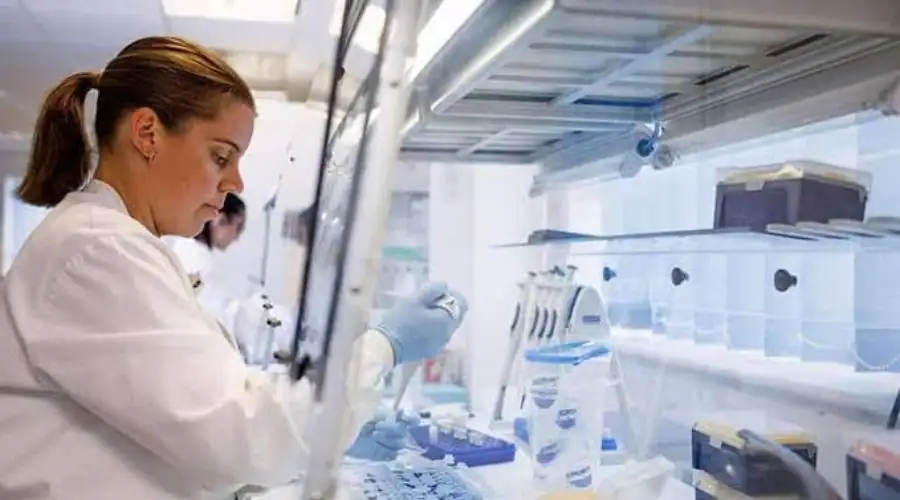Career opportunities in pharmaceutical industry: Introduction
A lot of undergraduate and young graduates or researchers in the life science do not have a sufficiently precise idea of the employment potential of the pharmaceutical industry, to seriously consider such a start or move for their professional career. This article is written to give them an initial overview of the job prospects and career opportunities in the pharmaceutical industry.
What is meant by pharmaceutical industry?
As a general term, the pharmaceutical industry is defined as the industry sector oriented to the research, development, production and commercialization of medicinal products (medicines, drugs, pharmaceuticals) t treat, prevent or diagnose diseases in humans or animals. The current definition of medicines is not limited to the classic world of small molecules, but also includes the more recently widely introduced biologicals or biopharmaceuticals (produced by living organisms), vaccines, in vivo diagnostics, radiopharmaceuticals and advanced therapy medicinal products (ATMPs) such as gene, cell and tissue therapies. Therefore, the term pharmaceutical industry is currently often replaced by biopharmaceutical industry.
Job and career opportunities in pharmaceutical industry:
Most companies are into human medicines, but some are specialized in veterinary medicines. The pharma companies who finally sell medicines often appeal to different types of pharmaceutical service providers and outsourcing companies all along the drug life cycle, from contract research organizations to contract manufacturing organizations, creating a whole world of extra employment possibilities.

Employment Potential in Pharmaceutical Industry:
According to EFPIA (European Federation of Pharmaceutical Industries and Associations), the research-based pharmaceutical industry in Europe directly employed about 830000 individuals in 2020 and a number that is still growing.
According to Bio-Space, there are six good reasons why a career in the pharmaceutical industry can be very rewarding:
- The salary range, i.e. it pays well
- Learning opportunities, i.e. you consistently learn, gain knowledge and discover ne things
- Job and career satisfaction, i.e. you help to save lives
- Scope for flexibility, i.e. although the pharma industry has to deal with some regulatory rigidity, innovation stimulates thinking outside the box
- Diversity, i.e. in the sense of operating worldwide, but also in being able to work in a multidisciplinary environment
- Access to latest technology, i.e. allowing you to stay up-to-date with the newest innovative technologies.
Variety of jobs and career opportunities in pharmaceutical industry:
Biopharmaceutical companies use a wide variety of function names and job or position titles to describe what their employees are responsible for. Their exact tasks are more precisely detailed in a job description. Although names and titles for similar jobs can vary substantially and finding its way in this employment jungle can be tricky, some general trends can be summarized as follows:
1. Jobs in Pharmaceutical Development:
Pharmaceutical production technicians can usually do with a bachelor degree in either chemistry, pharmaceutical sciences, biotechnology or bio-engineering. Higher positions will require a master degree in those life sciences, sometimes supplemented with a specialization, e.g. in industrial or radio-pharmacy. Here too, a PhD is certainly an asset in the competition for talented people, as well as for further career development.
Jobs Outlook:
During early drug development, these jobs are performed in laboratories and small-scale plants of pharmaceutical and biotech companies, while during late development and commercialization, they are transferred to full-scale production facilities. Pharma development and full-scale pharmaceutical production is currently often also outsourced to service providers specialized in the development of innovative formulations and to contract development and manufacturing organizations.
2. Jobs in Non-clinical Development:
The pharmacology part of non-clinical development, essentially dealing with the drug candidate’s desired pharmacodynamic effects in biological assay systems and animal models, is the workspace of experimental pharmacologists.
Lab technicians in the different disciplines involved, as well as laboratory animal facility technicians, require at least a bachelor degree or a professional master in the appropriate life sciences segment. For other entry positions, an academic master degree or a specially post-master degree may be sufficient, but it may take time to progress in your career.
In non-clinical drug development, there is room for many diverse life science professionals, i.e. the usual aspects such as biologists, pharmacists, biochemists, biomedical scientists, biotechnologists, pharmacologists, toxicologists and bioanalytical chemists. But in addition, there is also room for veterinarians, pathologists, immunologists, mathematicians, data analysts and biostatisticians.
Some attitudes and skills that are particularly valued include ambition, team spirit, a problem-solving mindset, good interactive and communication skills.
3. Lab Technicians in Pharmaceutical Industry:
For lab technicians, a bachelor degree in life sciences can be sufficient, but for most positions, a master degree is required. On top of that, a specialization or a PhD or a postdoc experience in a relative discipline is certainly an asset, and sometimes must.

Most of these jobs require a strong team spirit in a highly multidisciplinary environment. Although being a team player has become today a prerequisite in many jobs, this is certainly the case in the pharma industry. More specifically, successful drug discovery research requires passion to explore the unknown, out-of-the box thinking, intense intellectual creativity and resilience to failures.
Jobs Outlook:
Most of the positions described above are performed in laboratories, either at the bench (e.g. hands on lab work) or in an office (e.g. computer-aided drug design, managerial positions).
In big research-based pharma companies, the workplace is in their research centers, organized in different departments according to specific criteria, e.g. disease, therapeutic area, class of drugs, phases in the discovery or design process or contributing disciplines.
4. Jobs in Pharmaceutical Marketing:
Pharmaceutical marketing can be described as the process of promoting the sales of medicines. As it is the case for all marketed products, its strategy and tactics should be adapted to the different phases of commercial life cycle of a product. One of the specificities of pharmaceutical marketing is that sales promotion of prescription drugs.
Market access jobs are mostly occupied by professional with a life sciences degree with high-level understanding of the business. Relevant industry experience is important and can also be acquired after some internship period. Otherwise, a master in business administration (MBA) is certainly a plus. If your background is outside life sciences, then you might need a postgraduate specialization or a PhD in health or pharmaco-economics in order to be able to make career progress in this field.
Jobs Outlook:
The market access teams in biopharmaceutical companies tend to be rather small and rely heavily on external advisors or consultants. Therefore, there are probably more job opportunities with market access service providers or as independent freelance consultants.
5. Pharmaceutical Sales Jobs:
Pharmaceutical sales positions are usually occupied by people with a very diverse background. A bachelor or master degree in life sciences is certainly appreciated, but not a must. All newcomers, regardless of their background, receive an intensive initial training, then gain experience by accompanying senior colleagues, and continue to receive regular sales training each time a new promotional campaign is launched.
Important skills are a flair for sales, a detailed knowledge of your products, great persuasiveness and influencing skills.
Jobs Outlook:
The field sales force works in various healthcare facilities, e.g. private practices, hospitals or pharmacies. Sales management positions are primarily office jobs, although managers might sometimes accompany the sales reps on the road in order to coach them or do a part of their performance assessment.
6. Jobs in Pharmaceutical Manufacturing:
Pharmaceutical manufacturing offers a lot of job opportunities for professional bachelors, especially as production technicians, technologists or operators. Graduates with a master degree in life sciences such as pharmacy, biotechnology or bioengineering easily find their way as production supervisor or manager, as quality controller or operational quality specialist or as project engineer.
In a pharmaceutical production environment, candidates for a job should be team players, possess trouble-shooting skills and be flexible as some jobs require working in shifts, during nights and weekends.
Jobs outlook:
Small-scale production of APIs (small molecules or biologicals), or pharmaceutical technology development and manufacturing, can take place in a laboratory; but mid and large-scale manufacturing of medicines for clinical trails and market is done in factories present in several countries worldwide. Therefore, a majority of the jobs available in manufacturing are performed on the work floor, and only a minor fraction in an office.
You May Like To Read More:
- NHSC Scholarship Overview Eligibility Criteria
- University of Oxford Scholarship for International Students
- Top 6 Artificial Intelligence Jobs
- How to Get UK Student Visa
- How to Write Biodata for Job
- Best Course to Study in United Kingdom
- How to Write Cover Letter for Job Application
- The University of Auckland Best Online Master Degree Programmes
Career Opportunities
- Career Opportunities in Chemistry
- Career in Aerospace Engineering
- Career in Agriculture Engineering
- How to Become an Air Hostess
- How to Make Career in Aviation Industry
English Literature
- Harry Potter and the Philosopher’ Stone Story
- Most Famous Quotes from Macbeth
- The Romantic Period in English Literature
- She Stoops to Conquer Summary Questions Answers
- Autobiographical Elements in Shakespeare’s Sonnets
English Essay
